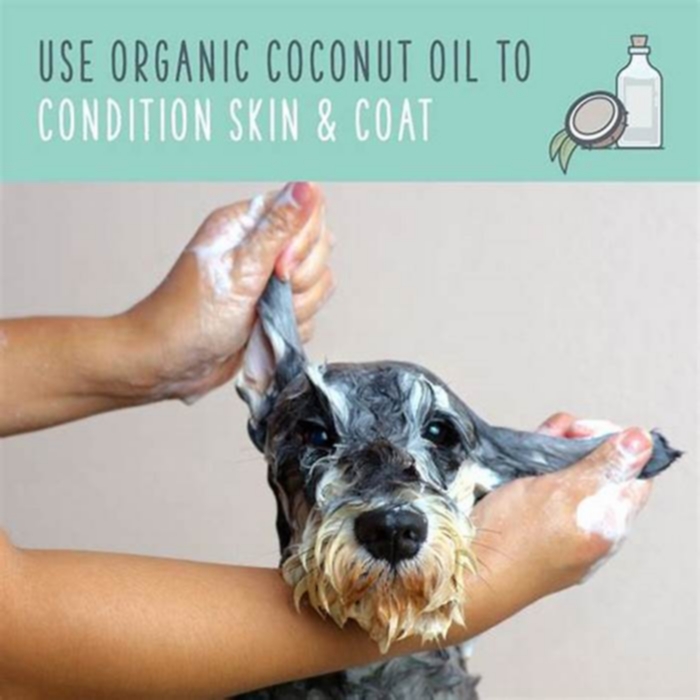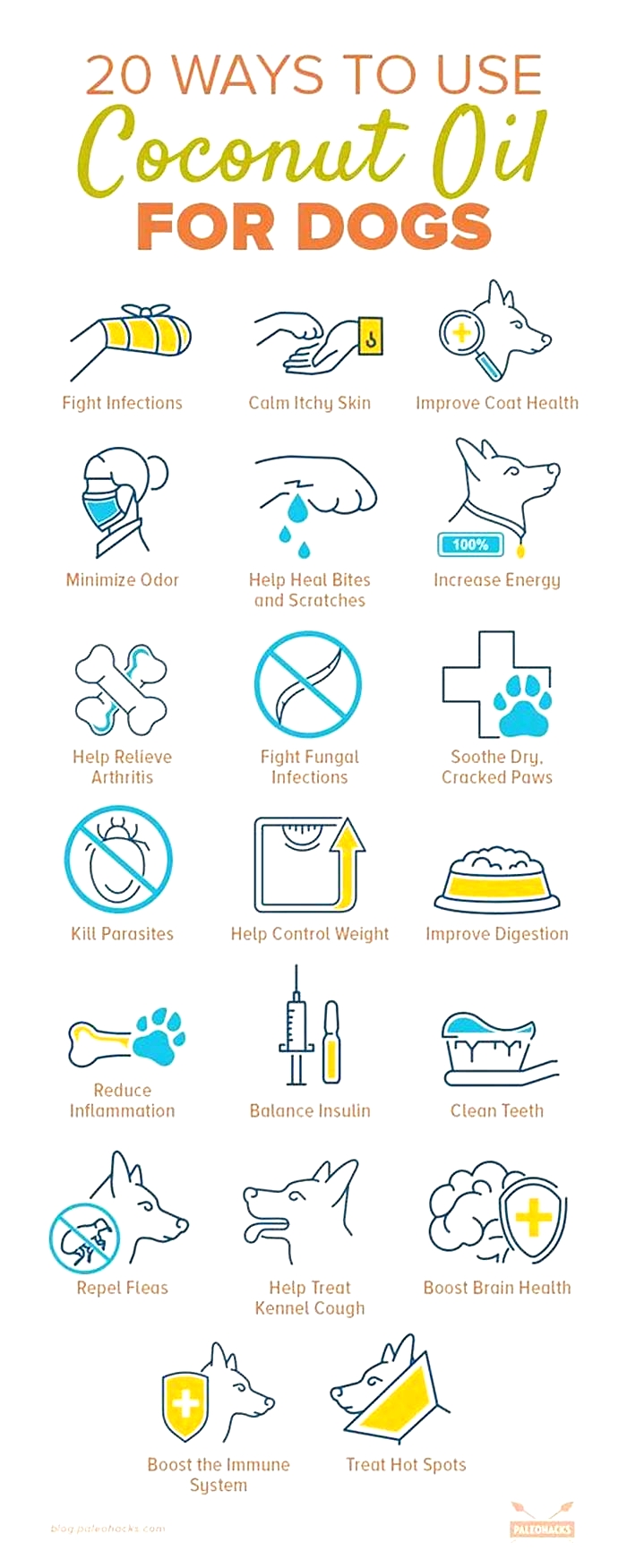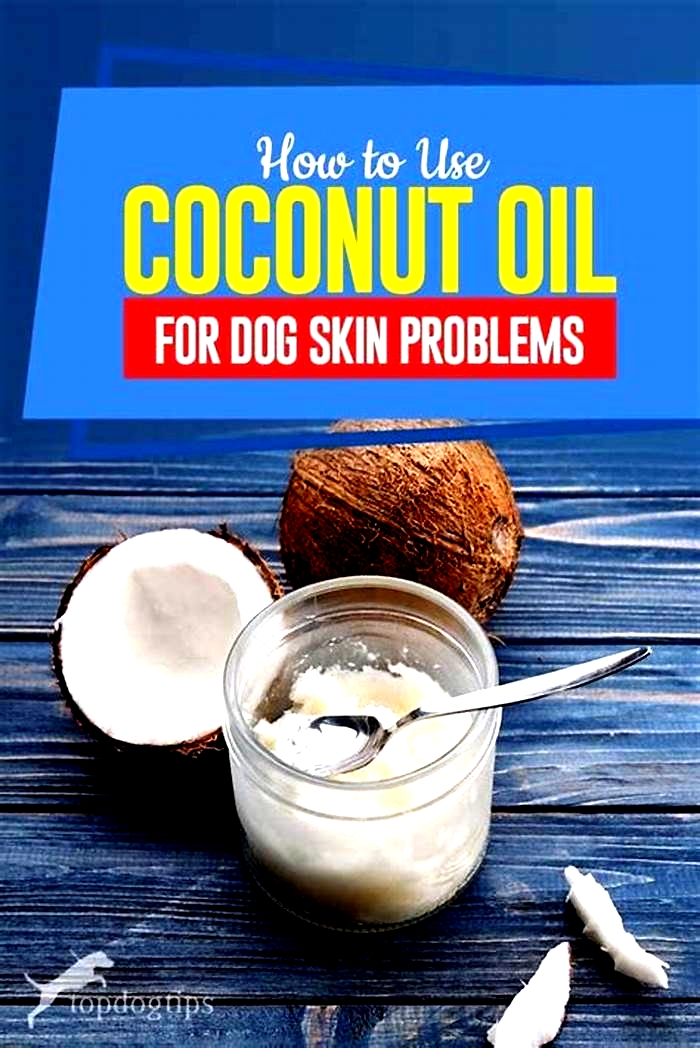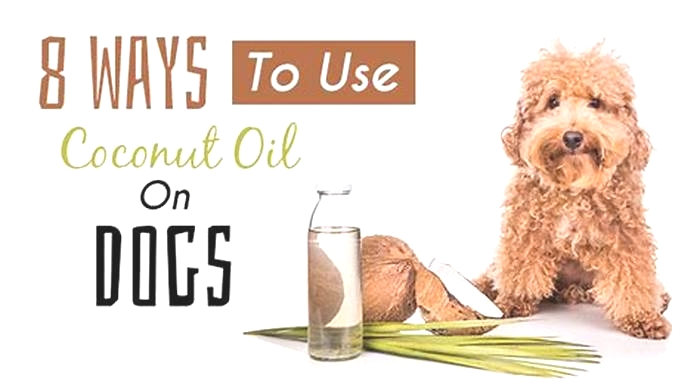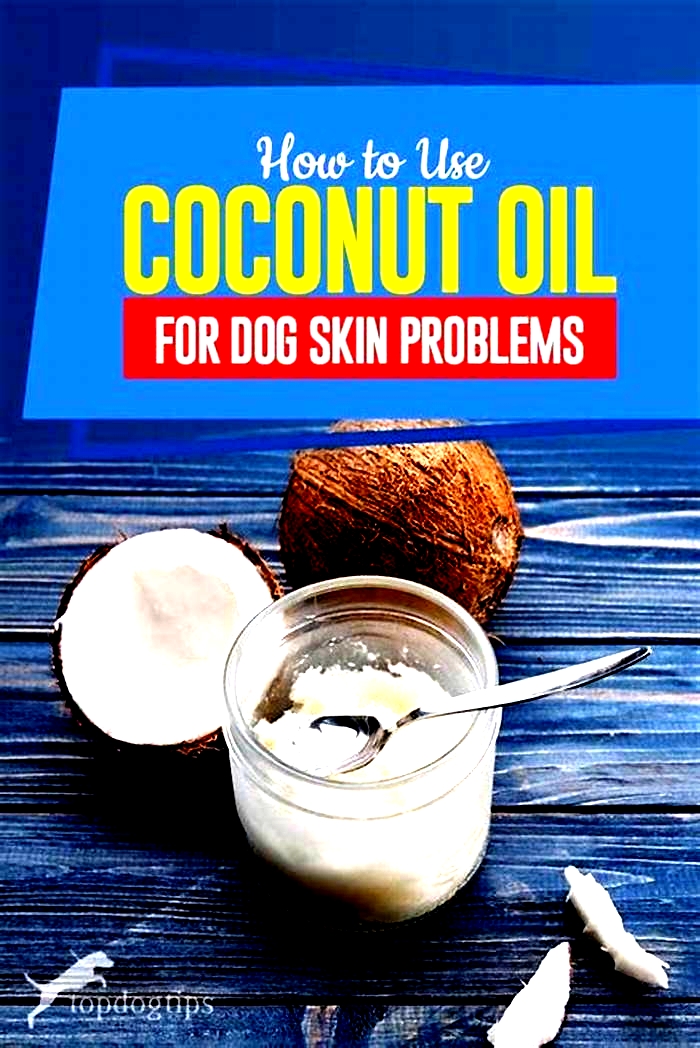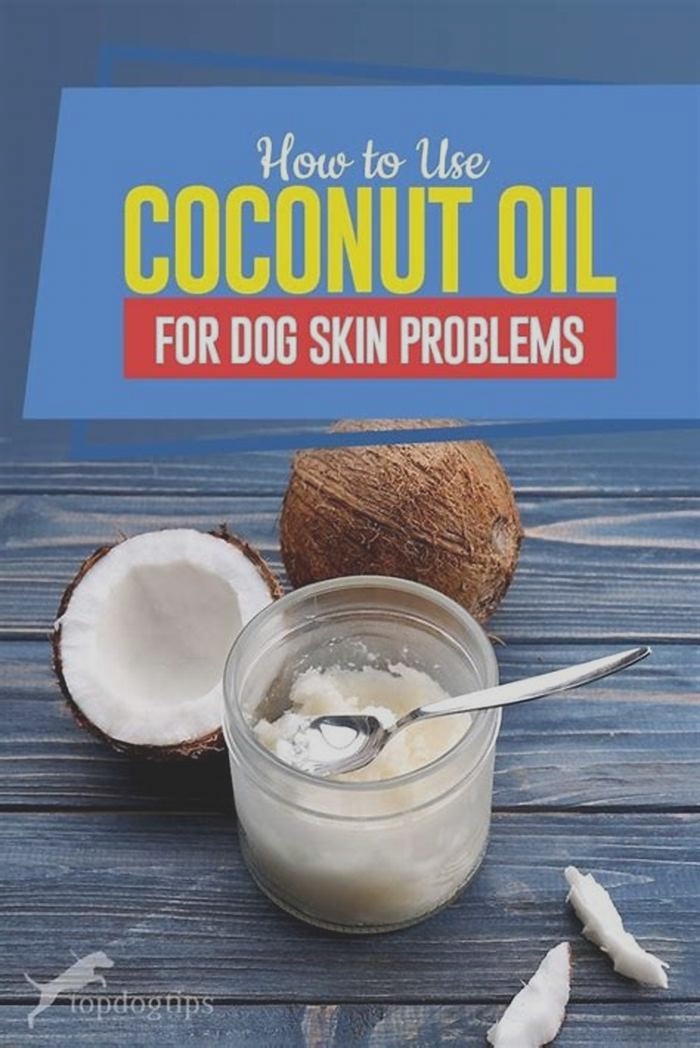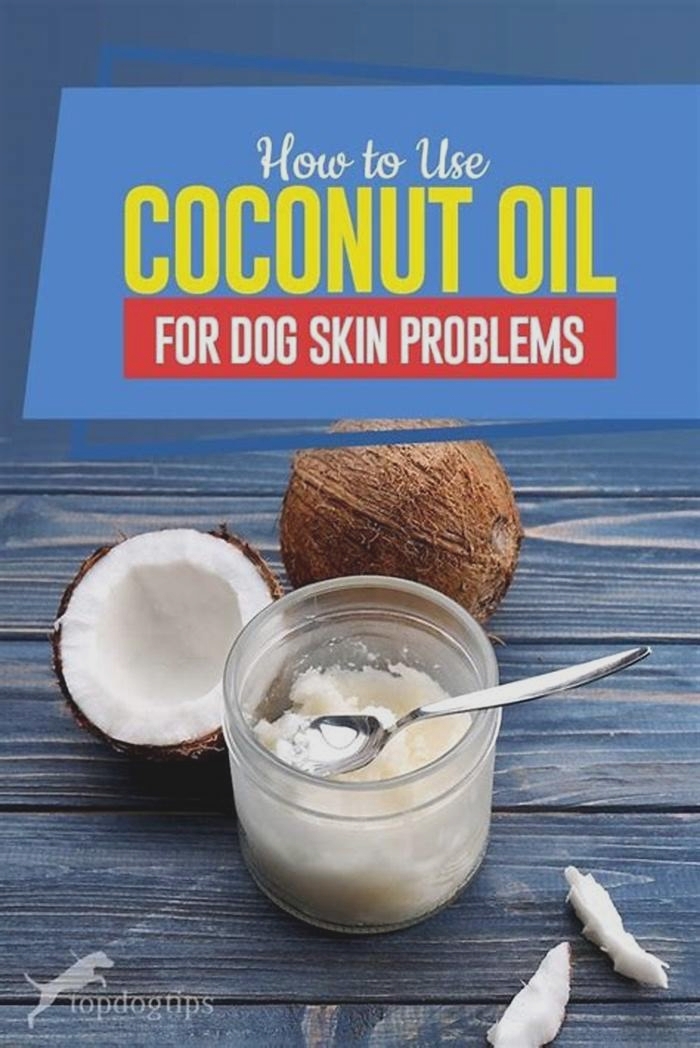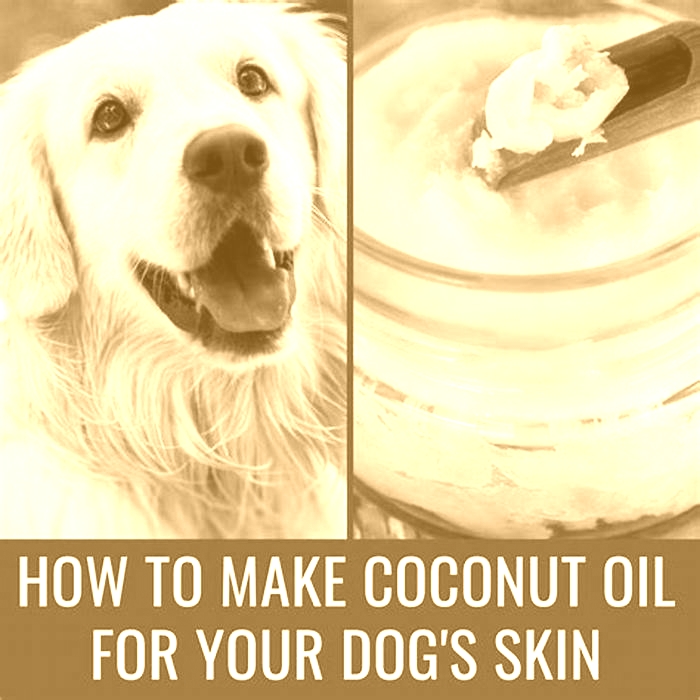Can I put coconut oil on my dog s dry skin
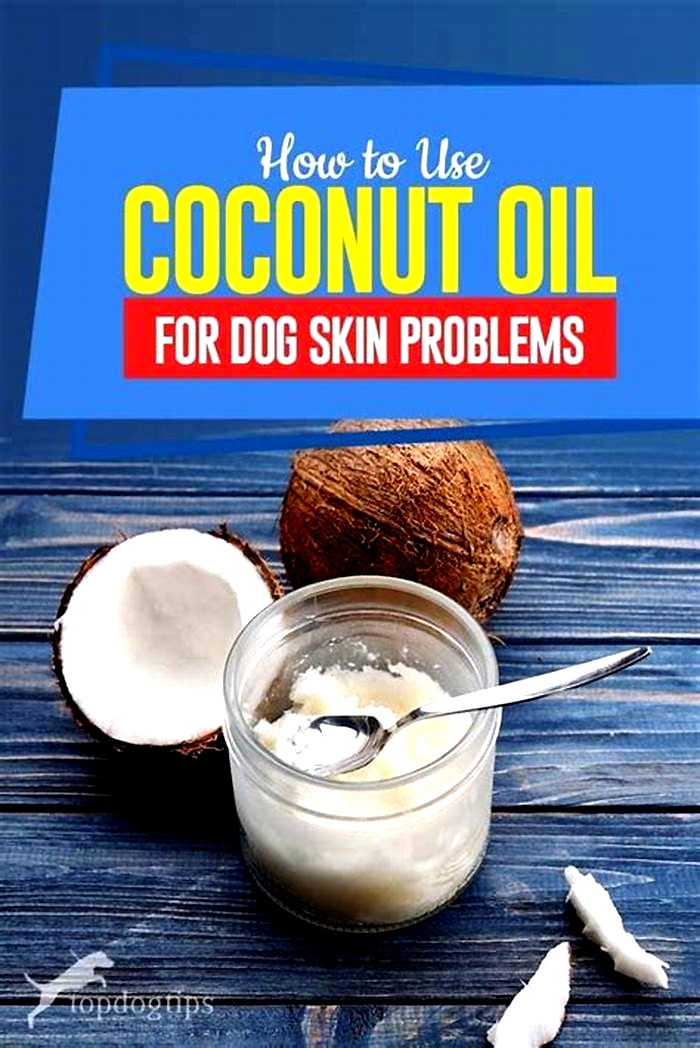
Coconut Oil for Dogs: Is it Really Good for Them?
Coconut oil has become a popular supplement for people. In humans, some evidence suggests that consuming coconut oil in limited amounts may offer possible benefits, including boosting the immune system, aiding in weight loss, acting as an anti-inflammatory and antifungal agent, and improving cognitive skills in patients with Alzheimers disease. Today, many experts debate how helpful eating coconut oil may actually be for people.
But pet owners are asking can coconut oil be beneficial to dogs? The answer is maybe. But that doesnt mean you should immediately feed your pet coconut oil or apply it to their skin. Heres what you need to know about coconut oil and dogs.
Science Behind Coconut Oil
Coconut oil comes from the meat of coconuts harvested from the coconut palm tree. Coconut oil consists of at least 90% saturated fats, most of which are medium-chain triglycerides (MCTs). Besides coconut oil, MCTs are often found in palmer kernel oil, butter, yogurt, milk, and cheese.
What are MCTs? MCTs are fatty acids that can be considered good fat. When consumed in moderation, MCTS can provide several benefits, including reducing skin inflammation. MCTs also metabolize quickly and provide an immediate source of energy. MCTs in coconut oil may help battle fungi and infection, support brain health, and lower cholesterol.
Can Dogs Have Coconut Oil? Pros and Cons
Can dogs eat coconut oil? Its possible consuming some coconut oil may offer internal benefits for dogs. The main MCT in coconut oil is lauric acid. Lauric acid has antimicrobial, antifungal, and antiviral properties. Coconut oil also has amounts of capric and caprylic acids, which are known for their antifungal effects. The oil also has both polyunsaturated and monounsaturated (fatty acids that support brain health and help lower cholesterol). Some research indicates that coconut oil may be helpful in aiding canine digestion, improving brain activity and mental function, and assisting with weight loss.
But is coconut oil good for dogs? These benefits dont mean you should go out and feed your dog coconut oil without veterinary approval. There hasnt been extensive research proving that coconut oil will definitively aid in many aspects of canine health. Vets may also debate how widely applicable (or relevant) these studies results are. Furthermore, feeding your dog coconut may work against some of the same conditions coconut oil is said to cure. For example, instead of helping with digestion, the fats in coconut oil can cause upset stomachs or diarrhea in dogs.
Additionally, coconut oil doesnt meet your dogs daily fat requirements. The acids in MCTs dont have enough omega-6 and omega-3 acids, and what it does contain isnt processed very efficiently. As for claims that MCTs protect against bacteria, viruses, and fungi, while the lauric acid in MCTs does kill germs in lab tests, there is no clear evidence that it can be used in sufficient quantities to offer dogs much protection.
When Applied Topically
You may be asking, Can I put coconut oil on my dog? In fact, applying coconut oil to your dogs skin may be helpful. Coconut oil can help soothe irritated areas like hot spots or restore moisture to itchy, dry skin. If your pet has dry, cracked paws, try a DIY paw balm with coconut oil as one of the ingredients.
To add some shine to your dogs coat, try using shampoos formulated for dogs that include coconut oil as an ingredient. A moisturizing dog shampoo containing coconut oil is ideal for hydrating dry fur, while a dog conditioner with coconut oil will help soften the hair.
Can I Use Coconut Oil as a Topical Antifungal Treatment?
If you think your dog may have a fungal issue, talk to your vet immediately and follow their recommended course of treatment. While coconut oil does have antibacterial and antifungal properties, it is unclear how well this translates to canine skin disease, Dr. Linda Simon says. The vets treatment will depend on the species of fungus causing infection, how serious or widespread the infection is, and the age and health of the dog, notes Dr. Jamie Whittenburg. She explains that most mild to moderate fungal infections can be treated topically with a combination of shampoos and creams.
If your dog has a musty smell or greasy skin (resulting from an overgrowth of yeast), your vet may recommend using a medicated wash. For severe or widespread fungal infections, especially in dogs with immune system dysfunction, your vet may prescribe oral medications. These medications can cause liver issues, so serial blood work should be performed to monitor the pets health, Dr. Whittenburg adds.
Your vet may recommend coconut oil as part of a skin supplement regime to strengthen the skin barrier and reduce itchiness or dry skin, according to Dr. Simon. Dr. Whittenburg adds, In most cases, theres no harm in utilizing topical coconut oil on a dog. However, it is messy, can clog pores, and may cause the dog to lick the affected area more, leading to increased pain, inflammation, and infection.
How Can I Safely Give Coconut Oil to My Dog?
Before applying coconut oil topically or giving your dog some to eat, discuss these options with your vet. If they approve of you giving coconut oil to your pet, choose unrefined coconut oil, also called virgin coconut oil. Better yet, look for cold-pressed oil, which uses a method to preserve nutrients.
If youre feeding it to your dog, be aware that oils have different smells and tastes. Some have a bold coconut taste, while others are bland. Some are buttery and smooth, while others are nutty. You may have to experiment a bit to find one your dog likes. Alternatively, your vet may recommend trying coconut oil skin and coat supplements designed specifically for dogs.
If you do put a small amount of coconut oil on your dog and they lick it off, that likely wont cause much harm. But feeding it to them can definitely lead to both weight gain and gastrointestinal disturbances, Dr. Whittenburg says. Dr. Simon agrees, explaining that long-term feeding of coconut oil can lead to obesity in dogs and even trigger pancreatitis (a potentially life-threatening condition caused by inflammation of the pancreas). In the short term, your dog may experience greasy stool or diarrhea.
To use coconut oil topically, apply it to the skin about once a week, and let it be absorbed for a few minutes. After five minutes or so, rinse your dog off. If they still feel greasy or oily to the touch, you can follow up with a light shampoo and rinse.
Because of the potential risks associated with the topical or internal use of coconut oil, Dr. Whittenburg doesnt recommend that dog owners select products specifically for their coconut oil content. In the case of hardened noses or paw pads, for example, using soothing products made with coconut oil can help soften.
Using Coconut Oil for Dogs Dry Skin: How-tos and Benefits
As a responsible dog owner, its essential to keep your furry friend healthy and happy. One of the most common issues that dogs face is dry skin, which can lead to itchiness, flakiness, and discomfort.
Fortunately, coconut oil can offer a natural and effective solution to this problem.
Coconut oil is an edible oil extracted from the meat of mature coconuts. Its a rich source of fatty acids, vitamins, and antioxidants that can benefit your dogs skin health.
In this article, we will explore the various methods and benefits of using coconut oil to treat your dogs dry skin.
Key Takeaways
- Coconut oil is a natural and effective solution for treating your dogs dry skin.
- Coconut oil can be beneficial for dogs with dry skin as it has moisturizing properties and can be applied topically to the affected areas or included in their diet for overall skin health.
- Coconut oil contains fatty acids, vitamins, and antioxidants that can benefit your dogs skin health.
- In this article, we will explore the methods and benefits of using coconut oil to treat dry skin in dogs.
Understanding Dog Dry Skin

Dry skin is a common issue in dogs, especially during the winter months or in drier climates. It can cause discomfort, itching, and flaking. While there are numerous factors that can contribute to dry skin, the most common causes include:
- Environmental factors, such as low humidity or exposure to harsh chemicals
- Nutritional deficiencies
- Allergies to food or environmental factors
- Parasites, such as fleas or mites
If you suspect that your dog has dry skin, its important to consult with your veterinarian for an accurate diagnosis and treatment plan. However, there are also some natural remedies you can try that may help alleviate your dogs dry skin symptoms.
Natural Remedies for Dog Dry Skin
Before turning to commercial products, you may want to consider these natural remedies for treating your dogs dry skin:
- Regular grooming: Brushing your dogs coat regularly can help distribute their natural oils and remove any dead skin cells or debris that may be contributing to their dry skin.
- Calming baths: Avoid using harsh shampoos or soaps that can strip your dogs skin of its natural oils. Instead, opt for a gentle, moisturizing shampoo or a natural oatmeal bath to soothe their skin.
- Topical treatments: There are a variety of natural oils and creams that can be applied topically to your dogs dry skin, such as coconut oil, olive oil, or aloe vera. These can help moisturize and soothe their skin.
Its important to note that while natural remedies can be effective at treating mild cases of dry skin, they may not be sufficient for more severe cases or underlying medical conditions. Always consult with your veterinarian before trying any new remedies or treatments on your dog.
Benefits of Coconut Oil for Dogs
If youre looking for a natural remedy to soothe your dogs dry skin, coconut oil may be just what you need. Coconut oil offers a range of benefits for your furry friends skin health:
Moisturizes Skin
Coconut oil is a natural moisturizer that can help replenish your dogs dry skin, leaving it feeling smooth and soft. It contains medium-chain fatty acids that can penetrate deeply into the skin to provide hydration.
Relieves Itching
Dry skin can cause itching and discomfort for your dog. Coconut oil has anti-inflammatory properties that can help reduce itchiness and soothe irritated skin.
Prevents Infections
Dry skin is more susceptible to infections, but coconut oil can help prevent this. It contains lauric acid, which has antibacterial and antifungal properties that may help keep your dogs skin healthy and infection-free.
Not only can coconut oil benefit your dogs skin health, but it can also improve the appearance of their fur. The moisturizing properties of coconut oil can help prevent dry, flaky skin that can lead to a dull coat. With regular use, your dogs fur may become shinier and healthier-looking.
Overall, using coconut oil for your dogs dry skin can provide a range of benefits for their skin and fur health. Keep reading to learn how to incorporate coconut oil into your dogs skincare routine.
Choosing the Right Coconut Oil
Not all coconut oils are created equal, and choosing the right one can make a big difference in the effectiveness of your dogs treatment. Here are some things to consider when choosing a coconut oil for your dogs dry skin:
- Opt for organic virgin coconut oil: This type of oil is less refined and processed, which means it retains more of its beneficial properties.
- Check the label: Make sure the ingredients list only includes coconut oil, and avoid any added preservatives or chemicals.
- Choose a reputable brand: Look for brands that are transparent about their sourcing and manufacturing processes.
Once youve found the right coconut oil for your dog, its important to store it properly. Keep it in a cool, dry place and away from direct sunlight. If the oil starts to smell rancid or develops mold, its time to dispose of it and get a fresh batch.
Applying Coconut Oil Topically
One of the most common ways to use coconut oil for a dogs dry skin is by applying it topically. Heres a step-by-step guide:
- Start by warming the coconut oil in your hands until it becomes liquid.
- Apply the oil to the affected areas of your dogs skin, gently massaging it in with your fingers.
- Let the oil sit on your dogs skin for at least 10 minutes.
- Rinse off the oil with warm water and a gentle shampoo.
For best results, repeat this process once or twice a week. You can also add other ingredients to the coconut oil to create DIY treatments that can provide additional benefits. Here are some ideas:
- Oatmeal and Coconut Oil Scrub: Mix equal parts of ground oatmeal and coconut oil and apply it to your dogs skin. Leave it on for 10-15 minutes before rinsing it off.
- Lavender and Coconut Oil Spray: Mix a few drops of lavender essential oil with coconut oil and water in a spray bottle. Spray on your dogs skin as needed to soothe itchiness and inflammation.
- Coconut Oil and Aloe Vera Gel: Mix coconut oil and aloe vera gel in equal parts and apply it to your dogs skin. Leave it on for 10-15 minutes before rinsing it off.
Incorporating Coconut Oil into your Dogs Diet
Aside from applying it topically, you can also incorporate coconut oil into your dogs diet to help improve their skin health from the inside out. The recommended dosage is approximately one teaspoon per 10 pounds of body weight, given once or twice a day.
Coconut oil can easily be mixed in with your dogs food or given separately as a treat. Its important to start with a small amount and gradually increase the dosage over time to avoid any potential digestive issues.
When selecting coconut oil for your dogs diet, look for organic, virgin, cold-pressed coconut oil. Avoid coconut oils that have been processed or contain additives, as these may not have the same benefits for your dogs health.
Incorporating coconut oil into your dogs diet may not only help improve their dry skin but also provide additional health benefits for their overall well-being.
Coconut Oil for Dog Skin Allergies
If your furry friend suffers from skin allergies, you know how uncomfortable and frustrating it can be for them. Luckily, coconut oil can provide relief for dogs with skin allergies!
Coconut oil contains anti-inflammatory and anti-bacterial properties that can help soothe and heal irritated skin. It can also help reduce itching, which is a common symptom of allergies in dogs.
To use coconut oil for dog skin allergies, apply it directly to the affected area. Make sure to use only a small amount, as too much can make your dogs coat oily. You can also add a small amount of coconut oil to their food to provide additional benefits.
Its important to note that while coconut oil can provide relief for some dogs with skin allergies, it may not work for all. Its always best to consult with your veterinarian before trying any new treatments for your dogs allergies.
Precautions and Considerations
Coconut oil is generally considered safe for dogs, but its essential to take some precautions and considerations before using it on their skin.
- Coconut oil for itchy dog skin: If your dog has itchy skin, coconut oil can help soothe the irritation. However, consult with your veterinarian before applying it, as they may want to examine the cause of the itchiness.
- Potential side effects: Some dogs may experience mild gastrointestinal upset, such as diarrhea, after consuming coconut oil. If this happens, consider reducing the dosage or discontinuing use.
- Recommended dosage: The recommended dosage for coconut oil in dogs is roughly one teaspoon per 10 pounds of body weight. As with any supplement, its best to start with a small amount and gradually increase it while observing your dogs reaction.
- Coconut oil quality: When choosing coconut oil for your dog, opt for high-quality, cold-pressed, unrefined oil. Avoid coconut oil that contains additives or preservatives.
- Application frequency: Applying coconut oil topically can be done daily or as needed, depending on the severity of your dogs dry skin. However, consult with your veterinarian for specific application instructions and frequency for your dog.
FAQ
Q: Can I use any coconut oil for my dogs dry skin?
A: Its important to choose a high-quality, organic, and unrefined coconut oil for your dogs dry skin. Avoid coconut oils that contain additives or are labeled as refined or hydrogenated.
Q: How often should I apply coconut oil to my dogs skin?
A: The frequency of application will depend on the severity of your dogs dry skin. In general, its recommended to apply coconut oil to their skin 1-2 times a day for optimal results.
Q: Can I use coconut oil for my dogs itchy skin?
A: Yes, coconut oil can help relieve itchiness caused by dry skin in dogs. Its moisturizing properties can soothe irritated skin and reduce itching.
Q: Can coconut oil be ingested by dogs?
A: Yes, coconut oil can be safely ingested by dogs. It can provide internal benefits, such as improving their skin health and boosting their immune system.
Q: Is coconut oil suitable for all dog breeds?
A: Yes, coconut oil is generally safe for all dog breeds. However, its always best to consult with your veterinarian before introducing any new topical or dietary changes for your dog.
Q: Are there any side effects of using coconut oil on dogs?
A: While coconut oil is generally safe, some dogs may experience minor digestive upset or allergic reactions. If you notice any adverse effects after using coconut oil, discontinue use and consult your veterinarian.
Q: How long does it typically take to see improvements in my dogs dry skin with coconut oil?
A: The timeframe for seeing improvements can vary depending on the severity of your dogs dry skin. In some cases, you may notice positive changes within a few days, while others may require several weeks of consistent use.
Q: Can coconut oil be used on puppies?
A: Yes, coconut oil can be used on puppies. However, its important to use a minimal amount and monitor for any adverse reactions, as puppies may have more sensitive skin.
Q: Can I mix coconut oil with other ingredients for a DIY dry skin treatment?
A: Yes, you can mix coconut oil with other natural ingredients, such as aloe vera or oatmeal, to create a DIY dry skin treatment for your dog. Just make sure to research the additional ingredients and their suitability for canine use.
Q: Can coconut oil be used as a preventive measure for dry skin in dogs?
A: Yes, coconut oil can be used as a preventive measure to maintain your dogs skin health and prevent dryness. Regularly applying coconut oil can help keep their skin moisturized and reduce the likelihood of dry skin issues.
Conclusion
Coconut oil is a natural and safe option for treating your dogs dry skin. By using it topically or incorporating it into their diet, you can help improve their skin health and reduce itchiness and irritation.
Make sure to choose a high-quality coconut oil that is free from additives and consult with your veterinarian before using it on your dog.


